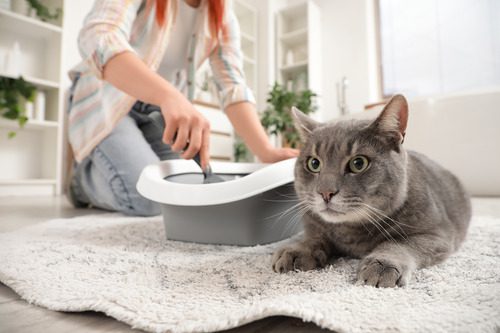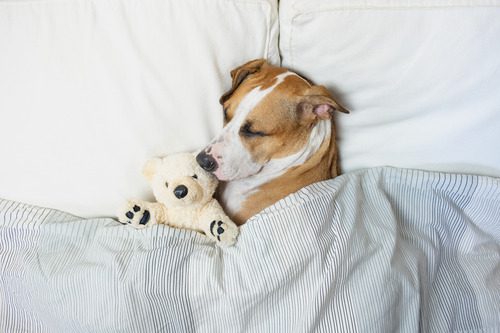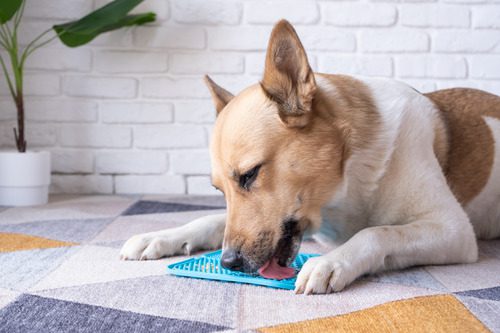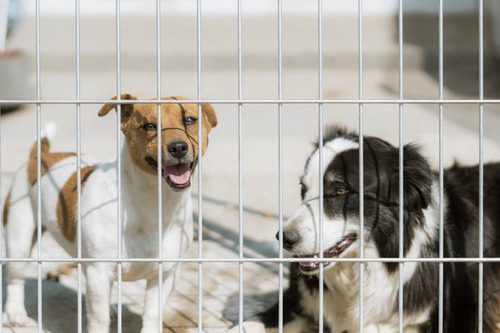Is it Normal that My Dog Keeps Sneezing?
Most dogs sneeze now and then. It’s often adorable and nothing to worry about. But if you’ve noticed your dog sneezing more often than usual, you might wonder what’s behind it. Is it just something in the air, or is there a health issue that needs attention? Occasional sneezing can be part of a dog’s way of exploring or reacting to their surroundings. Still, frequent sneezing could signal something more, from environmental irritants to infections or even dental concerns. In this blog, we’ll look at what causes dog sneezing, when to be concerned, and what your next steps should be if the sneezing doesn’t stop.
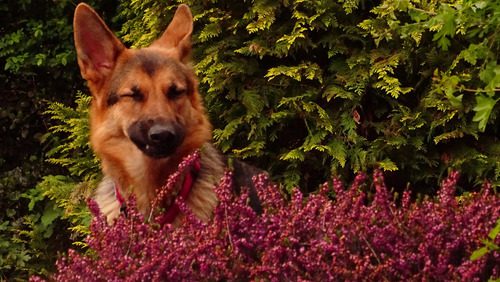
What Causes Dog Sneezing?
Dogs sneeze for many of the same reasons we do. It’s a natural reflex that helps clear irritants from the nasal passages. However, in dogs, sneezing can also be triggered by behavior, anatomy, or underlying health problems.
Environmental Irritants
Dust, pollen, perfumes, household cleaners, and smoke are all common culprits behind dog sneezing. When inhaled, these particles can irritate your dog’s nasal passages, prompting them to sneeze in an effort to clear them out. Seasonal allergies, just like in people, can cause sneezing during certain times of the year. Dogs may also sneeze if they’ve gotten into something dusty (think attic corners or a box of stored blankets) or even after sniffing another dog’s fur. Scented candles and air fresheners, while pleasant for us, can be strong irritants for dogs. If your dog sneezes frequently indoors, consider evaluating your home environment.
Behavioral Sneezing
Believe it or not, dog sneezing can be social or playful. Some dogs sneeze while playing as a signal that their behavior is friendly and not aggressive. This type of sneezing usually comes in short bursts and is seen alongside wagging tails, bowing, or other playful behaviors. It’s completely harmless and often part of their natural communication style.
When is Sneezing in Dogs a Sign of Something More?
Frequent or intense sneezing could point to something more than just dust or playfulness. If sneezing is accompanied by other symptoms or seems out of the ordinary, it’s worth paying closer attention.
Infection and Illness
Upper respiratory infections, such as canine influenza or kennel cough, often cause sneezing along with other symptoms like coughing, nasal discharge, and lethargy. These infections spread easily, especially in environments where dogs gather, such as daycare or boarding facilities. Bacterial, viral, or fungal infections in the nasal passages may also lead to dog sneezing that won’t resolve on its own. You might notice other signs like a loss of appetite, fever, or thick nasal discharge, especially from one nostril.
Nasal Mites
Though uncommon, nasal mites are tiny parasites that can infect the nasal passages and sinuses in dogs. They’re transmitted through direct contact and can cause intense, persistent sneezing fits, nosebleeds, and even facial itching. Nasal mites require a diagnosis and treatment plan from a veterinarian.
Foreign Objects in the Nose
Dogs explore the world with their noses, and sometimes that curiosity leads to trouble. A blade of grass, seed, or small piece of debris can become lodged in a dog’s nasal passage, causing repeated sneezing and even pawing at the face. If sneezing suddenly becomes violent and one-sided, a foreign object could be the cause.
Can Dental Problems Cause Dog Sneezing?
Surprisingly, yes, dental issues can lead to sneezing in dogs. This happens because the roots of the upper teeth lie close to the nasal passages. Infections or abscesses in the upper teeth can create inflammation that extends into the sinuses, leading to sneezing.
How Dental Disease Affects the Nose
When dental disease reaches an advanced stage, it may create a fistula, or an abnormal opening, between the oral and nasal cavities. This can cause chronic sneezing, nasal discharge, or even food particles passing from the mouth into the nose. Regular dental checkups can help prevent this from happening and protect both oral and nasal health.
Is My Dog’s Breed More Likely to Sneeze?
Some dog breeds are more prone to sneezing due to the shape of their face and nose. Brachycephalic breeds, which are those with short noses and flat faces have compressed nasal structures that make them more susceptible to sneezing and noisy breathing.
Common Brachycephalic Breeds
- Pugs
- Bulldogs
- Boston Terriers
- Shih Tzus
- Boxers
These breeds often reverse sneeze as well. This is a rapid inhaling motion that can sound alarming but is generally harmless. However, because their airways are more compact, they may also be at higher risk for infections and other respiratory concerns. If your flat-faced dog is sneezing persistently or shows signs of distress, a veterinary exam is a good idea.
What is Reverse Sneezing and Is It the Same?
Reverse sneezing can easily be mistaken for choking or respiratory distress, but it’s actually quite different. It’s more common in small and brachycephalic breeds, and it involves a forceful inhalation rather than exhalation.
How to Recognize Reverse Sneezing
During an episode, your dog may:
- Stand still and extend their neck
- Snort loudly or gasp repeatedly
- Appear panicked but remain conscious and recover quickly
Episodes typically last only a few seconds to a minute and resolve without intervention. However, frequent or intense reverse sneezing should still be evaluated to rule out underlying causes like irritants or infections.
What to Watch for If Dog Sneezing Continues
If your dog’s sneezing becomes frequent or is paired with other symptoms, it may signal something that needs professional care. Keep an eye out for:
- Discharge from one or both nostrils
- Blood in the mucus
- Pawing at the nose or face
- Nosebleeds
- Swelling around the nose or eyes
- Coughing or wheezing
- Decreased appetite or energy
Any of these signs could indicate infection, a foreign body, dental issue, or more serious health concern. The sooner it’s identified, the better the outcome for your dog.
What Your Veterinarian Will Look For
When you bring your dog into Best Friends Veterinary Hospital for an exam, your veterinarian will gather information about the frequency and pattern of sneezing, check for nasal discharge, and assess your dog’s breathing. They may recommend additional diagnostics, including:
- Nasal swab or flush
- Dental evaluation
- X-rays or advanced imaging
- Blood tests to check for infection or inflammation
- Rhinoscopy to examine the nasal passages
Your vet’s goal is to determine whether the sneezing is due to a temporary irritation or something requiring treatment, and then walk you through the next steps.
A Persistent Sneeze Deserves a Closer Look
While the occasional dog sneezing episode is typically nothing to worry about, ongoing or intense sneezing can point to something more significant. Environmental irritants, dental disease, infections, or even nasal mites can all be to blame. If your dog keeps sneezing and you’re not sure why, reach out to our team for guidance. Call one of our Best Friends Veterinary Hospital locations today or book an appointment online to have your dog checked by a member of our experienced team. We’ll help you find answers and peace of mind.
Recent Posts
About Best Friends Veterinary Hospital
Our veterinarians and staff warmly welcome dogs, cats, and a variety of exotic pets as patients here at our animal hospital, and we offer a host of services to give your unique family member a lifetime of excellent care.

